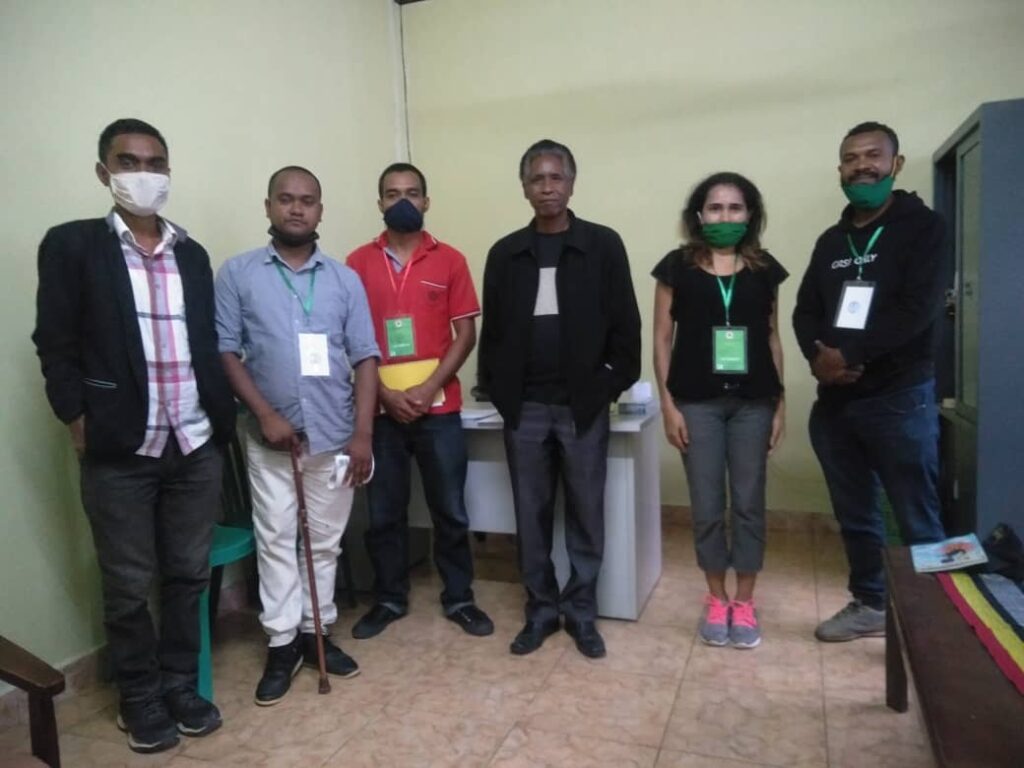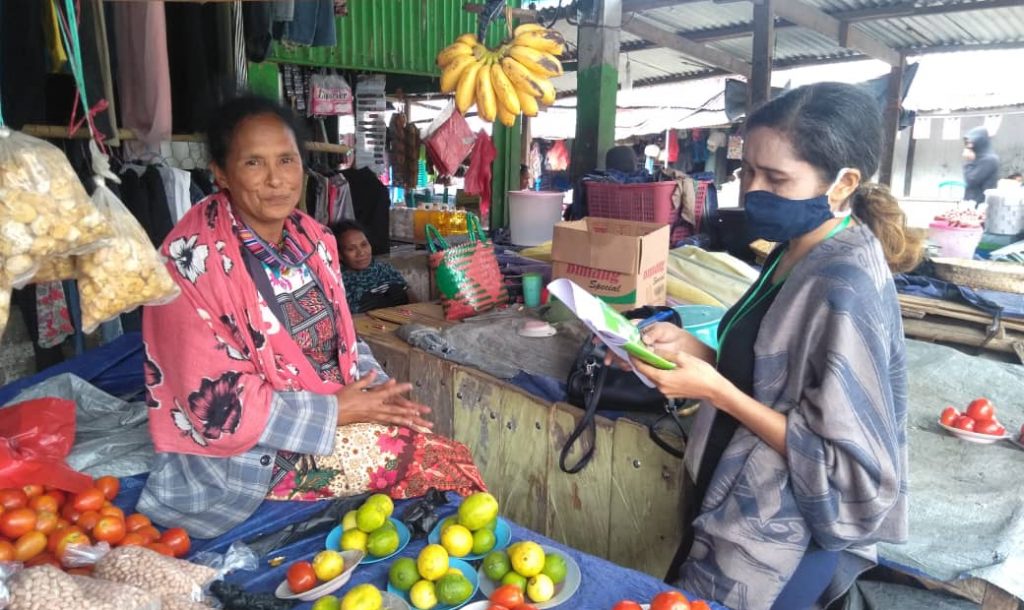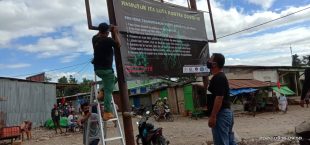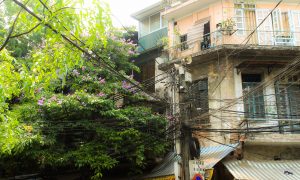The COVID-19 pandemic has not only had global health, economic and social impacts, it has also impacted on civic space. But what has been the impact of COVID-19 on civic space in Timor-Leste? To understand this impact Oxfam commissioned a researcher who spoke with civil society and government actors whose voices are highlighted in this article. This article focuses on the first three months of the State of Emergency (March to June 2020) when restrictions on movement, gathering and border entry were most severe in Timor-Leste. In the second of two articles, OXFAM’s Associate Director in Tomor Leste, Annie Sloman, looks at the impact of government and civil society responses.
Accessing information and freedom of expression
Sharing of accurate information during the State of Emergency in Timor-Leste was a concern. Significant misinformation about COVID-19 was shared, including by journalists. Even with efforts to increase journalists understanding and reduce misinformation this continued to be an issue. Additionally, as frontline workers, journalists were concerned that there was a lack of COVID-19 prevention measures and support (such as supply of PPE) during press conferences. While there was greater awareness of this as the State of Emergency progressed, it was often not controlled and best practice in COVID-19 prevention was rarely implemented or policed during media conferences. But it was noted that press freedom was upheld during this time.
“Journalists do not yet 100% understand (COVID-19) to be able to share correct information to the public. It’s lucky there is the balance with civil society information about COVID-19 on how to help the community prevent the illness, the media’s understanding of the issue is still limited.” Timor-Leste Journalist, June 2020
Information shared with the public, including through daily briefings on national television by the Government’s Integrated Crisis Management Centre for COVID-19, focused on public health. While the Centre was seen as important, and steps to make the information accessible, such as use of sign language interpreters, was commendable, the focus on public health left gaps in information about the full extent of the impact of COVID-19. Civil society actors felt the social and economic impact were not addressed. This led to the establishment of the CSO COVID-19 Impact Information Centre, led by the CSO team for the Prevention of COVID-19, which supported information sharing with both government and the public on the impact of COVID-19 on diverse groups and sectors, and how to prevent COVID-19. The results of monitoring and analysis of government and development actors’ COVID-19 responses were also shared. 18 bi-weekly press conferences were held from May to June 2020, with different civil society actors addressing 33 different topics. The government, in general, was welcoming of these actions. Rui de Araujo, former Prime Minister and lead of the COVID-19 Integrated Crisis Management Centre, reportedly welcomed the CSO COVID-19 Impact Information Centre.
In Timor-Leste, as in many countries, numerous CSOs conduct face-to-face engagement with decision makers as a key part of their approach to working with government and holding it accountable. This was restricted during COVID-19, meaning other ways to engage had to be found. The CSO COVID -19 Impact Information Centre became a key way to do this in a restricted environment, where voices could be amplified through the media and thus contribute to accountability and transparency.
“While the Integrated Crisis Management Centre for COVID-19 was established (by government), this centre was not integrated, as it was more like a centre for health, only sharing information on the number of positive and negative COVID-19 cases. It didn’t talk about how to respond to those that were hungry, social economic rights, collective transport from the municipalities to Dili, transporting agriculture products from farms to markets or about there being no rice. It said it was an integrated centre, but it wasn’t integrated.” Timor-Leste Civil Society representative, June 2020
In general government was open to evidence and invited input. The government found the situation challenging and needed information about different groups and communities that they could not directly engage with. With its community links and ability to act fast, civil society filled this gap and brought these voices and impacts forward. The CSO team negotiated a greater role for civil society within the response as time progressed. For example, the Ministry of Social Solidarity approved the CSO team for the Prevention of COVID-19to monitor household subsidy payments. This led to several cases being reported to the National Corruption Commission (CAC). Civil society were key in bringing evidence, diverse voices and feedback to the COVID-19 response.

CSO COVID-19 Taskforce meeting with local authorities about COVID-19 response and impact, Core Group Transparency
“The information we got from Dili or the Municipalities we would take to the Public through the COVID-19 Impact Information Centre. Through this the government would then understand how people were experiencing hunger in the municipalities. We communicated with communities about the government’s plan, such as the subsidy plan. We had regular contact with communities, as they considered that we understood about the whole process.” Timor-Leste Civil Society Representative, June 2020
Indications that this work was being considered by government were evident. Talk shows, articles and research by civil society actors discussing the impact of COVID-19 on the informal sector helped influence the government to take into account the needs of the sector, which had not been considered in the initial response. A law focusing on informal sector support was passed by the government. The plan for a second round of social protection support for households was also influenced through CSO input. Originally the distribution of household subsidy payments missed people and households in need. The selection of households was also criticised. Flawed data, failure to account for diverse circumstances and hidden populations, such as women who have left husbands due to violence, LGBTIQ+ families, and households with persons with disabilities. The fact that payments were the same for all households, whether big or small, was also criticised. Civil society was outspoken on this matter, monitoring payments and actively lobbying for the needs of vulnerable and diverse groups to be considered in follow up support. And while the new measures are not perfect, there is evidence this has been better considered.
The government’s openness to the role that civil society has played, and their willingness to consider and meet with civil society, while not always optimal, has demonstrated open civic space around accessing information and freedom of expression.
Access to funding
“Shrinking civic space” is not only characterised by increasingly rigid or restrictive local laws and regulations, but also by reductions in funding. A key enabler for civil society actors’ engagement and action during the strict state of emergency periods was funding.
“We readjusted everything to support the COVID response, but work that is pertinent, we couldn’t do."
Timor-Leste Civil Society Representative, June 2020
CSOs and networks spoke of different impacts. As in many countries, CSOs struggled to function effectively under lockdown. Pivoting work to focus on COVID-19 was key. But for many, funding and donor flexibility was crucial as normal activities could not continue. Many spoke of flexible donors who allowed their existing funding to be redirected to COVID-19 activities so that CSOs could support COVID-19 prevention measures, monitoring and other related activity, while continuing to pay staff and function. But other organisations spoke of struggling to pay staff as donors were inflexible or there was a lack of funding. Journalists also spoke of salary reductions. Some organisations had a mix of both flexible and non-flexible donors, meaning that they had funding to cover some staff salaries but not others. Additionally much of the funding allocated for normal work was pivoted to COVID, meaning funding gaps emerged after the strict State of Emergency periods when development programming continued.
“Covid-19 “affected our organisation as plans that we had all had to stop, we were also impacted by donors, as only some gave flexibility to pivot our budget to COVID related activities… this situation affected some staff that weren’t able to get a salary.”<br /><br />
Timor-Leste Civil Society Representative, June 2020
There was very limited additional funding for local civil society to respond to COVID-19. Most funding for COVID-19 work went to international agencies and NGOs. While some donors, such as the European Union and the Australian Government’s Department for Foreign Affairs and Trade, required sub-granting to local CSOs, the number of organisations that were sub-granted was limited, with few reaching the Grand Bargain commitments of 25% of funding going to national organisations. Some donors have openly stated that they are hesitant to support local organisations directly as they cannot meet strict donor compliance requirements. This calls into question the commitment for localisation of humanitarian action as outlined in the Grand Bargain. Local organisations that received funding for COVID-19 specific work tended to have existing partnerships with international NGOs and agencies, which demonstrates the importance of preparation, established relationships and mechanisms for partnering in advance of disasters and shocks. Two points are critical here: providing resources to strengthen CSOs capacity to implement and manage funds in ways that enable international actors to support them; and greater recognition of the need for realistic flexible donor requirements that focus on impact over compliance.
“When the government declared that all activities had to stop (during the State of Emergency), we weren’t able to get an income. Really the Government should give some money to Civil Society, to help them undertake activities to prevent COVID-19.”<br /><br />
Timor-Leste Civil Society Representative, June 2020
Security
An area of concern in maintaining open civic space is security of civic space actors. Issues of security during COVID-19 in other countries have been concerning. A key indicator of success in a government’s COVID-19 response is dealing with the pandemic as a health problem, not a security issue. Security forces should respect the fundamental rights of all citizens while applying security measures.
In Timor-Leste most civil society actors interviewed did not feel their security was threatened while undertaking COVID-19 related work. There were 20 cases reported by the Human Rights Provedore during the first two months of the State of Emergency. Most of these cases related to the use of excessive force by state security forces (primarily police). A small number of cases were in relation to interpretation and implementation of the State of Emergency rules. In general, there were no major concerns that security had disproportionately negative impacts on human rights, and the situation improved over time.
“When the State of Emergency started, the police undertook practices that were not good, but after a few weeks we saw they improved… For example at first when people didn’t follow social distancing rules or use a mask the police would ask people to do push ups, but after a while they changed and we didn’t hear cases like that again, they started to use a more personal approach and cooperation went well.”<br /><br />
Timor-Leste Civil Society Representative, June 2020
Legitimacy and Accountability of Civil Society
An important part of open civic space is that civil society is respected, considered legitimate, and held accountable. In Timor-Leste COVID-19 arguably provided opportunities to increase legitimacy and accountability among civil society actors. The quick and public response from civil society, their leadership in direct response efforts and monitoring, and the establishment of the CSO COVID-19 Impact Information Centre demonstrated the important role that civil society can play and the value of open civic space.
Respondents outlined that the involvement and coordination led by the NGO Forum FONGTIL was appreciated during this time. Accountability was maintained to the public, government and other actors through the CSO COVID-19 Impact Information Centre press conferences and to FONGTIL and other network members through regular updates and discussion in an online messaging group that included over 110 members. This enabled civil society actors across the country to engage with the CSO Team for the Prevention of COVID-19 and hold them to account.
“The civil society response was quick in the emergency. They undertook identification and coordination with other civil society actors… they looked at implementation of policies and the emergency decree, they talked about security, education, health and other sectors. Civil societies coordination functioned, and they continue to be alert.” Timor-Leste Civil Society Representative, June 2020
COVID-19 has brought shared experience, vulnerability and the interconnectedness of human experience sharply into focus. Our health is inextricably linked to the health of our neighbours. Our resilience is community resilience. Cooperation and collaboration are not choices, they are the only way to respond to this crisis. Civil society actors enable people to come together to hold their leaders and decision makers to account, and to address challenges that governments cannot manage on their own. By facilitating engagement with governments and sharing information, civil society provided constructive outlets for people to pursue their interests and express their beliefs in a way that reinforces stability.
Civic space in Timor-Leste has been challenged and expanded by the pandemic
Civic space in Timor-Leste during COVID-19 Part 1: Governance and civil society
Governments and donors should pay attention to positive examples of collaboration between citizens, civil society, governments and other civic actors that demonstrate collective responses to managing the pandemic and preserving people’s rights. By encouraging critical debate and information flow, governments contribute to increasing levels of civic trust in necessary measures and policies. While COVID-19 created opportunities for Timor-Leste’s civil society to play key roles during the pandemic, demonstrating open civic space, the threat to press freedom and free speech embedded in the proposed defamation law, revealed the fragility of civic space. It is important that there is increased recognition, support and resourcing to maintain open civic space in Timor-Leste.
This article was written with the support of the Australian Government’s Department for Foreign Affairs and Trade, Governance for Development Program through the Oxfam in Timor-Leste Hadalan project. The views expressed in this publication are the author’s alone and are not necessarily the views of the Australian Government.
 Facebook
Facebook  Twitter
Twitter  Soundcloud
Soundcloud  Youtube
Youtube  Rss
Rss 



